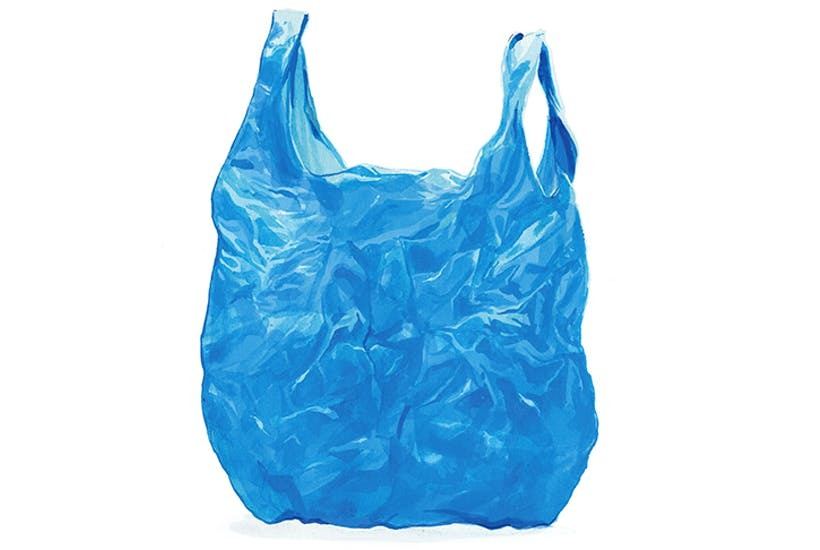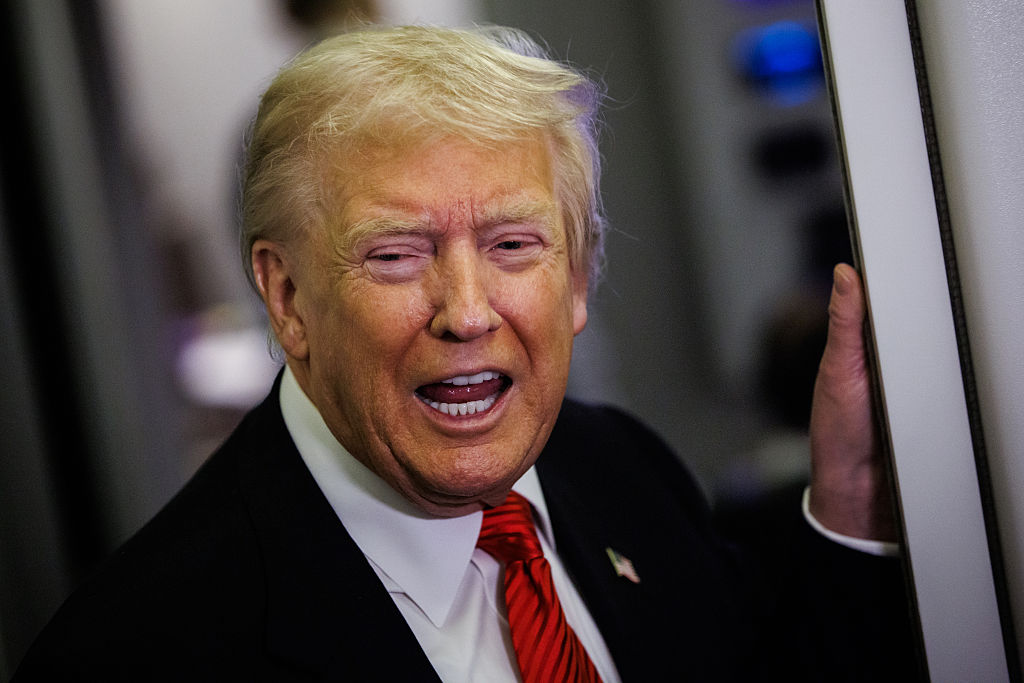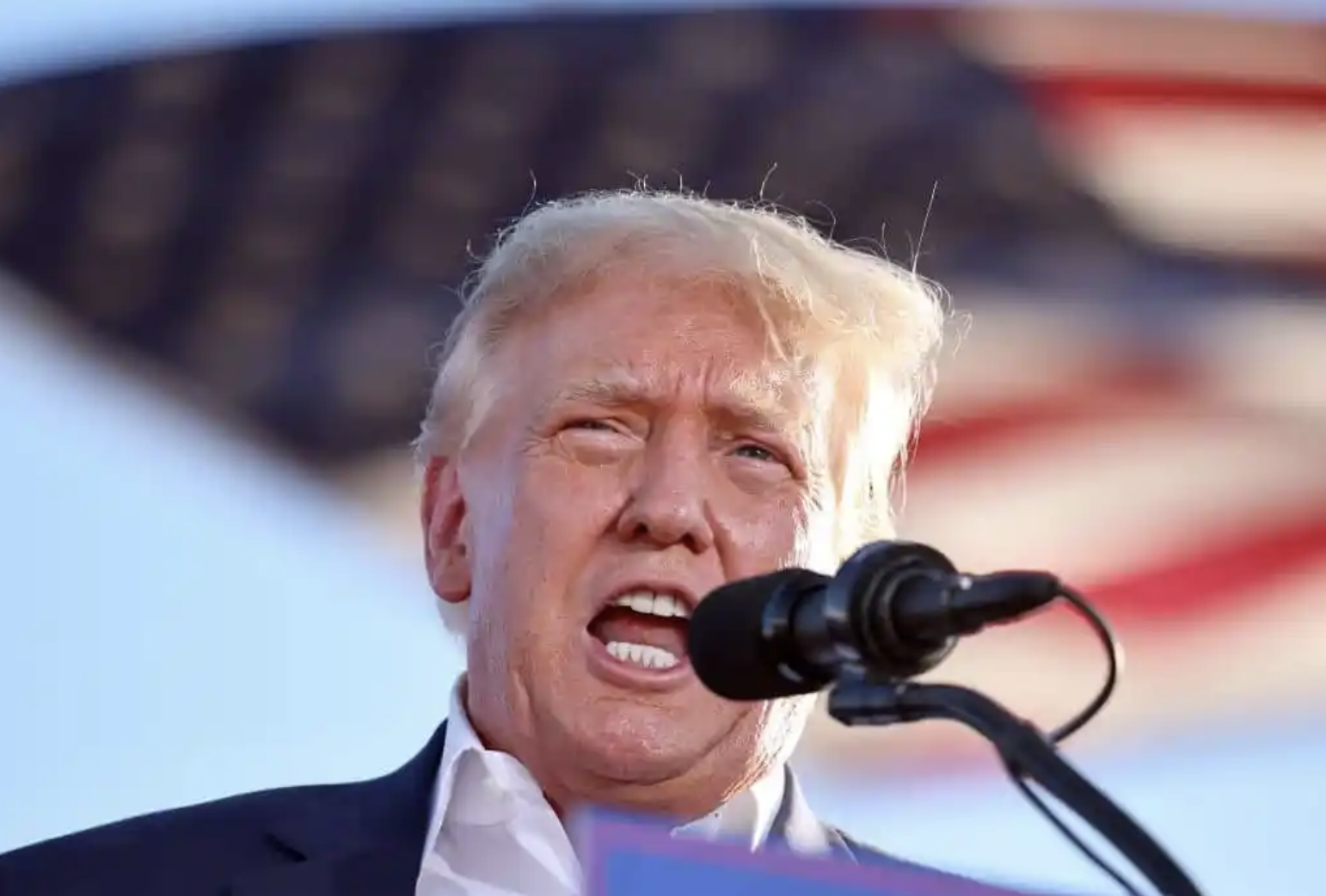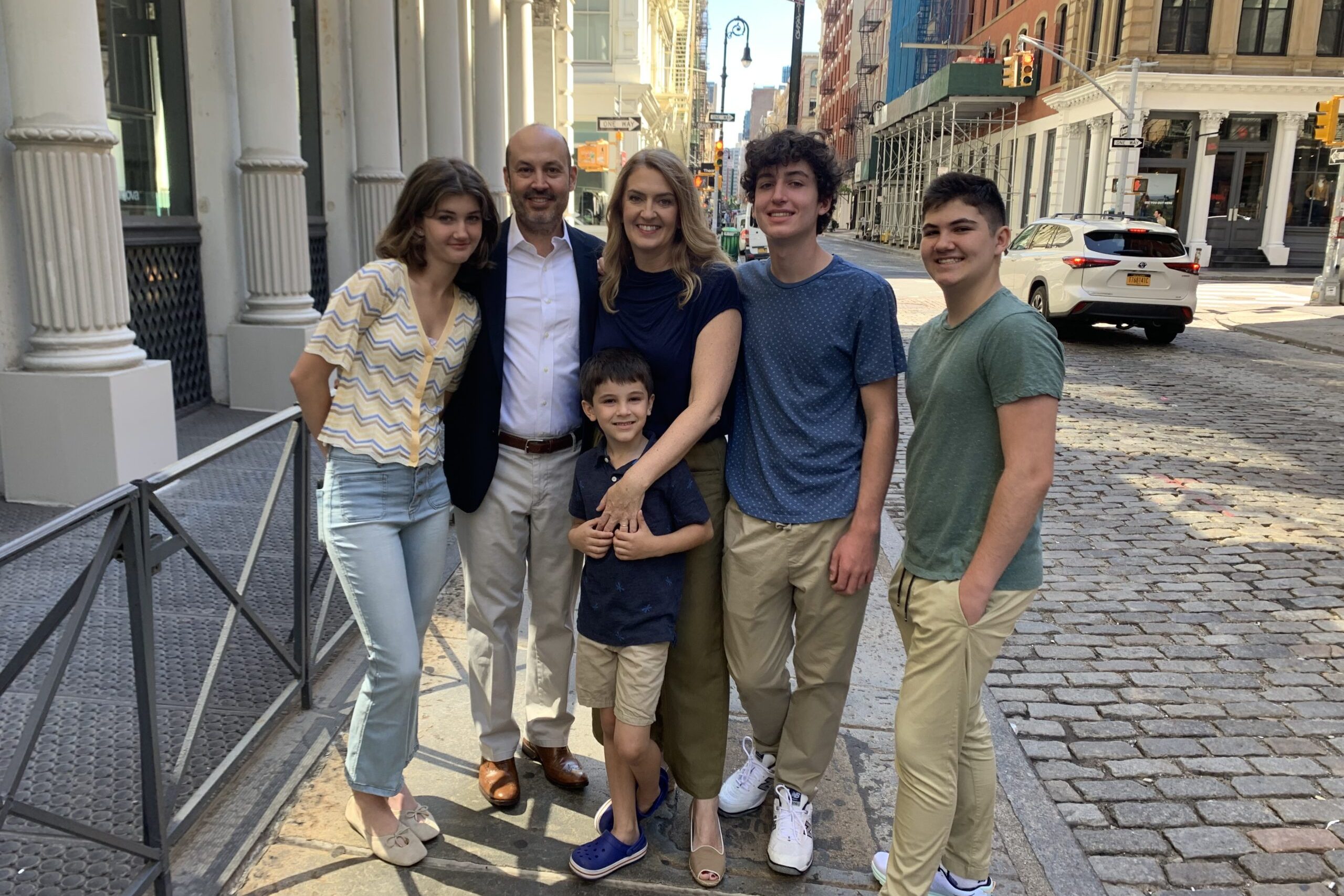Bangladesh was the first to ban them back in 2002. Other countries, from Rwanda to Macedonia, have followed and in many places they are being taxed out of existence. Yet the United States’ reaction to the global drive to tackle the scourge of disposable plastic bags is, largely, a collective “meh”. What is it with America and its love affair with the plastic bag? Why has it been so hard for this country to take action the rest of the world considers both necessary and relatively painless?
Here’s the boring but worthy bit: single-use plastic bags are a Bad Thing. They have a horrible effect on our oceans, swishing around in the water and posing a major hazard to marine life. Taking thousands of years to break down, low-density polyethylene (LDPE), which almost all grocery store bags are made of, contaminates our land from sea to plastic-clogged sea, choking our parks and countryside, our rivers and public spaces. No one but no one looks at a ratty old bag caught in the branches of a majestic tree and thinks “How Beautiful”.
And bans and taxes work. When Ireland imposed a 15 cent tax (around 18 US cents) in 2002, take-up of plastic bags fell by 94 per cent. Kenya feels so strongly about the glut of plastic garbage choking its streets that it has introduced jail terms of up to four years for those who flout the ban.
It ought to be a no-brainer. But let’s face it – plastic bags are just so darn handy. Single-use plastic bags are lightweight, hygienic and convenient – why, they give them out in armfuls at every grocery store in the land. No need to remember to bring a fabric bag if you suddenly remember you’re out of milk on the way home from work. No drama; no mess. Plastic bags stop our food spilling out and our fellow commuters from peering at our groceries (a surprising number of people in surveys report that this is important to them).
Tax-despising Americans resent the imposition of yet another levy. Were a tax of just 5 cents to be introduced, a family whose weekly shop might involve the use of 20 bags could find themselves handing over an additional $1 for the pleasure of carrying it home.
It’s easy then to see why Americans are, on the whole, unpersuaded by the arguments for plastic bag taxes or bans. Yet it goes further than that. We aren’t just opposed to legislation curtailing single-use plastic bags; we’re positively in love with the things.
In most supermarkets and grocery stores, one bag is never enough; double bagging is de rigour. An item first packaged by the manufacturer is then placed into a small plastic bag by either the shopper or checkout assistant, then dumped into two more plastic bags before being popped into the customer’s own backpack or holdall – itself a bag.
When consumers don’t find it weird that individual orange slices come wrapped in plastic (what’s wrong with nature’s own packaging device; the peel?) it’s hard to see where the drive to reduce the use of plastic will come from.
There are some honourable exceptions; after a certain amount of to-ing and fro-ing, California voted to ban the bag two years ago, and single-use, disposable bags are effectively outlawed in Hawaii. Some jurisdictions, including Washington DC, have introduced taxes. In most States, though, the attitude towards plastic bag reduction is, shall we say, tepid. A couple of states, Florida and Arizona, have actually introduced legislation barring local communities from introducing their own plastic bag taxes. Federal action to reduce the use of disposable bags seems unlikely under the current president, but in a way that’s irrelevant. Elsewhere in the world, plastic bag bans have been very much a consumer-led phenomenon. In the UK, where a 5p (7 cent) fee on bags was recently enacted, the issue is no longer a party political one. Conservatives are as anti-plastic as liberals. It’s kind of the same here – except in the opposition way. Americans of all political persuasions are big believers in the bag.
Take New York again, one of the most progressive and liberal cities in the Union with a proud history of environmentalism and the number one target for the anti-plastic bag lobby. Is the Big Apple going to ban bags any time soon? Fuhgeddaboudit.
A proposal to introduce a 5 cent tax was in fact signed into law by Mayor Bill de Blasio in 2016. Taking account of the fastidious nature of most New Yorkers, it provided exemptions for takeout food and items obtained from pharmacies, included plans for a mass handout of reusable fabric bags and permitted stores to offer their own free bags for two weeks every April.
Yet it was blocked by de Blasio’s fellow Democrat, Governor Andrew Cuomo, after heavy lobbying from the plastics lobby, who successfully portrayed the proposed levy as an idea dreamed up by Brooklyn hipsters at the expense of low-income communities.
Nationally, only about 15 per cent of plastic bags are currently taken for recycling – and many of them end up in landfill, with only a limited number of recycling plants nationwide to do the complex task of breaking down old bags to turn into something useful (usually new bags).
Shoppers who bring their own bags to stores to take home their groceries are viewed with bafflement. I have rarely got away with saying just once that I don’t require a bag; it takes several repeats before the message gets across that no, I really, really don’t want a bag.
New Yorkers throw away an average of 20 bags a week each; nearly 10 billion a year. Eliminating the resulting 1,700 tonnes of waste a week would save the city $12.5 million annually.
It is statistics like that, more than the marine life, more than the wreathes of plastic washing up at Coney Island, or the bags choking the Hudson, which may end America’s love affair with the plastic bag.

























